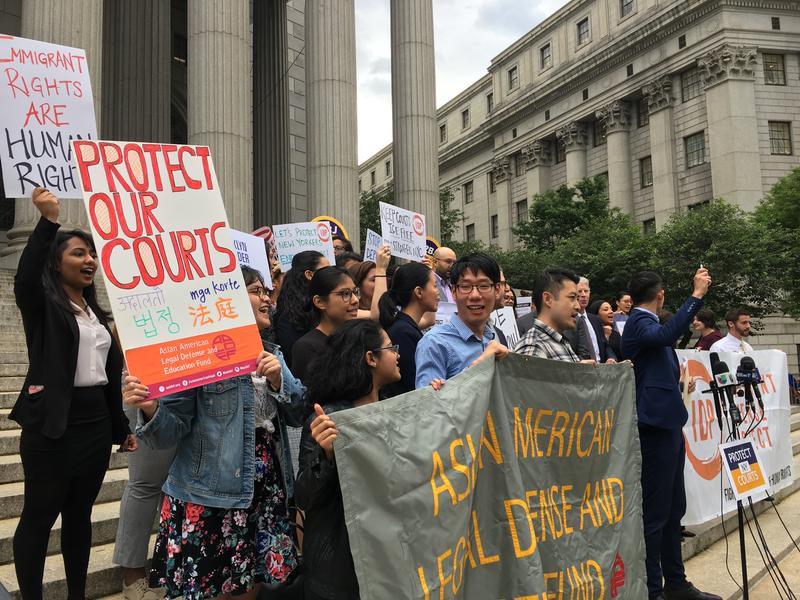
Immigration and Customs Enforcement (ICE) has a policy against arresting immigrants in spaces that are deemed “sensitive,” like houses of worship, schools and hospitals. But the federal agency always considered courthouses to be public buildings. Now the New York Assembly has introduced legislation aimed at making arrests more difficult in courts.
The Protect Our Courts Act, introduced last week by Long Island Assemblywoman Michaelle Solages, would prohibit ICE agents from making arrests in New York State courthouses without a warrant signed by a judge. The NYPD and city jails have similar policies.
The new legislation is a response to the reported uptick of ICE agents in courthouses since 2017. "Trump has unshackled ICE to realize his vision of mass deportation,” said Andrew Wachtenheim, Supervising Attorney at the Immigrant Defense Project at a rally outside Manhattan Supreme Court, Tuesday. “In 2017, the pace of arrests has increased 1200 percent in the state of New York, and in 2018 the pace of arrests is yet more rapid.”
Over the past year, as WNYC as reported, public defenders have protested ICE's increased presence by staging walkouts. On Tuesday, Anthony Posada of the Legal Aid Society thanked Assemblywoman Solages for listening to the concerns of immigration advocates and introducing the measure. “When we asked the Chief Judge and the Office of Courts Administration nobody listened.”
Chief Judge Janet DiFiore has maintained that courts are public buildings, limiting her power to prevent ICE officers from entering them. Various lawmakers have proposed solutions and held public hearings but no action has yet been taken.
A spokesman for the Office of Court Administration said it's too early to comment on the Assembly's bill before thoroughly studying it. No other state has enacted a similar measure to restrict ICE from courts. ICE has offered no comment on the bill, but the agency has said it doesn't need a judicial warrant to make arrests.
The bill has yet to pass the Democrat-controlled Assembly, and would have an even harder time getting through the Senate, where Democrats and Republicans each have 31 votes.
